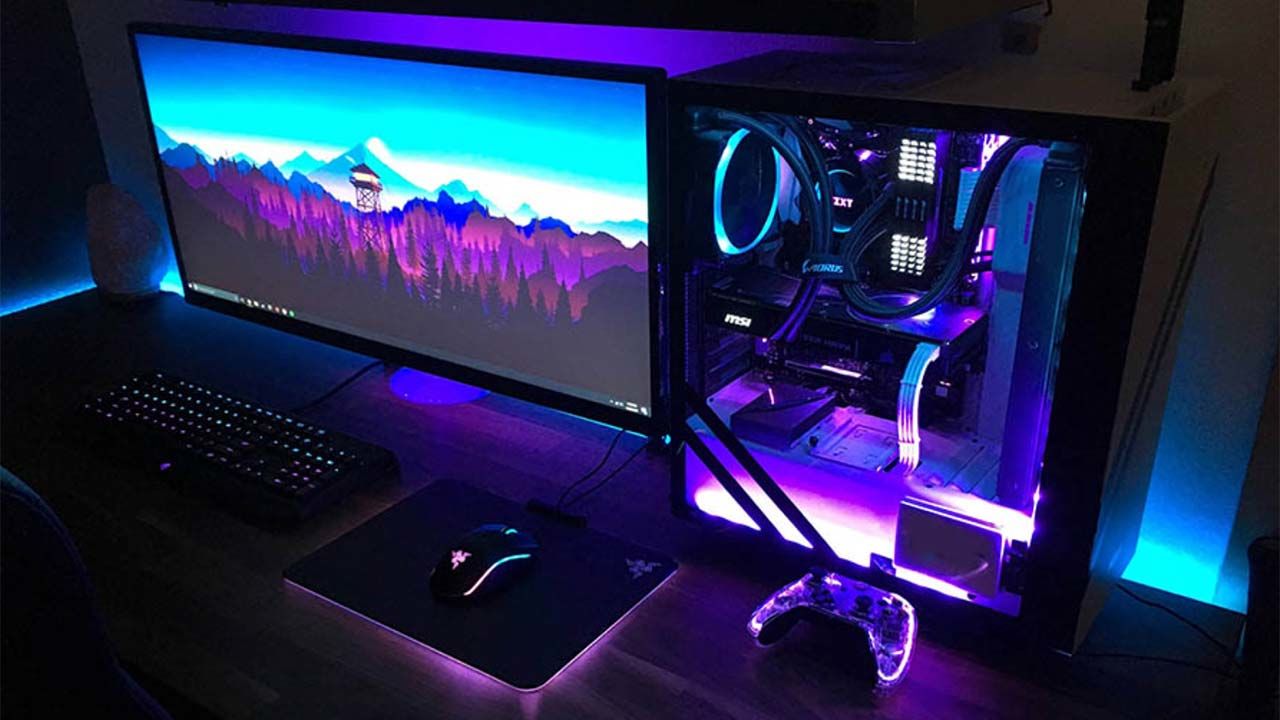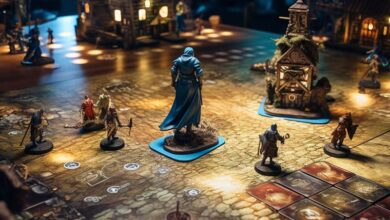Things to Know When Buying a Gaming PC
There are a few important things to consider when buying a gaming PC. Firstly, the processor (CPU) has a big impact on gaming performance, so it’s important to choose a powerful processor. A good start would be to choose one of the latest generation processors. The graphics card (GPU) is one of the most critical components to ensure a smooth experience in graphics-intensive games. A high-performance graphics card ensures that you can run games at high resolution and detail settings. The amount of RAM is also important; at least 16GB RAM is generally recommended for games. This will be enough to run multiple applications and games at the same time without any problems.
Things to Know When Choosing a Gaming PC
For storage, choosing an SSD (Solid State Drive) allows games and systems to load faster. Many users prefer to install the operating system and frequently used applications on a fast SSD and use a larger capacity HDD (Hard Disk Drive) for additional storage. Since the motherboard is where all the components come together, it is important to choose a model that suits your needs in terms of expandability and compatibility. The power supply (PSU) should have enough power to keep your system running safely and stably, preferably with a high efficiency rating.
Cooling system is a critical factor to prevent overheating of components, especially in games that require high performance. An effective cooling system contributes to the longevity of your system. In addition, peripherals such as monitors, keyboards, and mice can also significantly affect your gaming experience, so you should choose these components according to your personal preferences. With all these factors in mind, you can choose the best gaming PC for your budget and needs.
The importance of SSD
In gaming PCs, SSD provides significant advantages in many respects and greatly improves the gaming experience. SSDs offer much faster read and write speeds compared to traditional HDDs. This speed boost allows games and in-game worlds to load much faster, so players don’t have to wait and enjoy a smoother gaming experience. Particularly in games with large game files and long loading screens, the speed difference from SSD means a noticeable improvement.
In addition, because SSDs have no moving parts, they are more durable and provide better protection against bumps and jolts. This is a big advantage, especially for portable gaming PCs, as these devices tend to be more mobile. SSDs also run quieter and generate less heat, which helps lower overall system temperature and reduce the need for cooling.
When used for games as well as software and applications, the performance benefits offered by SSD increase overall system speed and response time, allowing the PC to run faster and more efficiently both in gaming and in everyday tasks. In short, SSDs offer a significant upgrade to gaming PCs in terms of speed, endurance and efficiency, and are a component that significantly improves the modern gaming experience.
Graphics Card
In gaming PCs, the graphics card (GPU) is one of the most critical components that directly affects the quality of the gaming experience. The graphics card is responsible for processing the computer’s graphics and transferring them to the monitor, so a high-performance GPU is capable of running games at higher resolutions, higher frame rates and more detailed graphics settings. This means a more visually rich and fluid gaming experience.
Because graphics-intensive games require complex graphics calculations in real time, a powerful graphics card can quickly perform these calculations, which improves the visual quality of the game and smooths gameplay. A better GPU also means the ability to maintain high frame rates even when playing at higher resolutions and higher settings, providing a more visually satisfying experience and improving player response time.
Graphics cards also support advanced graphics effects such as in-game lighting, shading, texture detail and physics simulations, making the game world more realistic and immersive. These effects allow the player to dive deeper into the game’s atmosphere and enjoy a more immersive experience.
A powerful graphics card is also important when using technologies such as multi-monitor setups and virtual reality (VR). Such applications require high graphics performance, and a powerful GPU is critical to ensure a smooth experience in these advanced usage scenarios. In short, the graphics card is the key to both visual quality and overall gaming performance on a gaming PC, and is therefore a component that should be emphasised when choosing a gaming PC.
Additional Hardware
When building a gaming PC, a range of ancillary hardware is important in addition to the main components. These complement your gaming experience and can affect overall performance. Firstly, a gaming monitor is important for accurately displaying visual details and colours in games. A monitor with a high refresh rate and low response time provides smoother movement and fast response times, giving you an edge in competitive gaming.
The gaming keyboard and mouse are vital for accurately and quickly recording user input. A gaming mouse with features such as customisable keys and high DPI (dots per inch) settings increases precision and speed. Mechanical keyboards offer a faster and more satisfying key feel, ensuring comfort and performance during long gaming sessions.
A gaming headset is essential for hearing in-game sounds clearly and communicating effectively with teammates. High-quality sound and microphone enhance the immersion of the gaming experience and facilitate communication in competitive games. In addition, a gaming chair provides ergonomics and comfort during prolonged gaming sessions. Good support and adjustability features help maintain body posture and reduce fatigue.
A high-speed internet connection is especially important for online gaming. This reduces latency (lag) and ensures an uninterrupted connection during gaming. A wired network connection usually offers the most stable and fast connection, but a quality Wi-Fi router can also be a good alternative.
Adequate power supplies and cooling systems are important to keep your system running stable and prevent components from overheating. This optimises performance and extends the life of the components. These ancillary equipment can significantly affect the performance and user experience of a gaming PC. Therefore, when assembling a gaming PC, it is worth investing not only in the main components, but also in these ancillary equipment.





